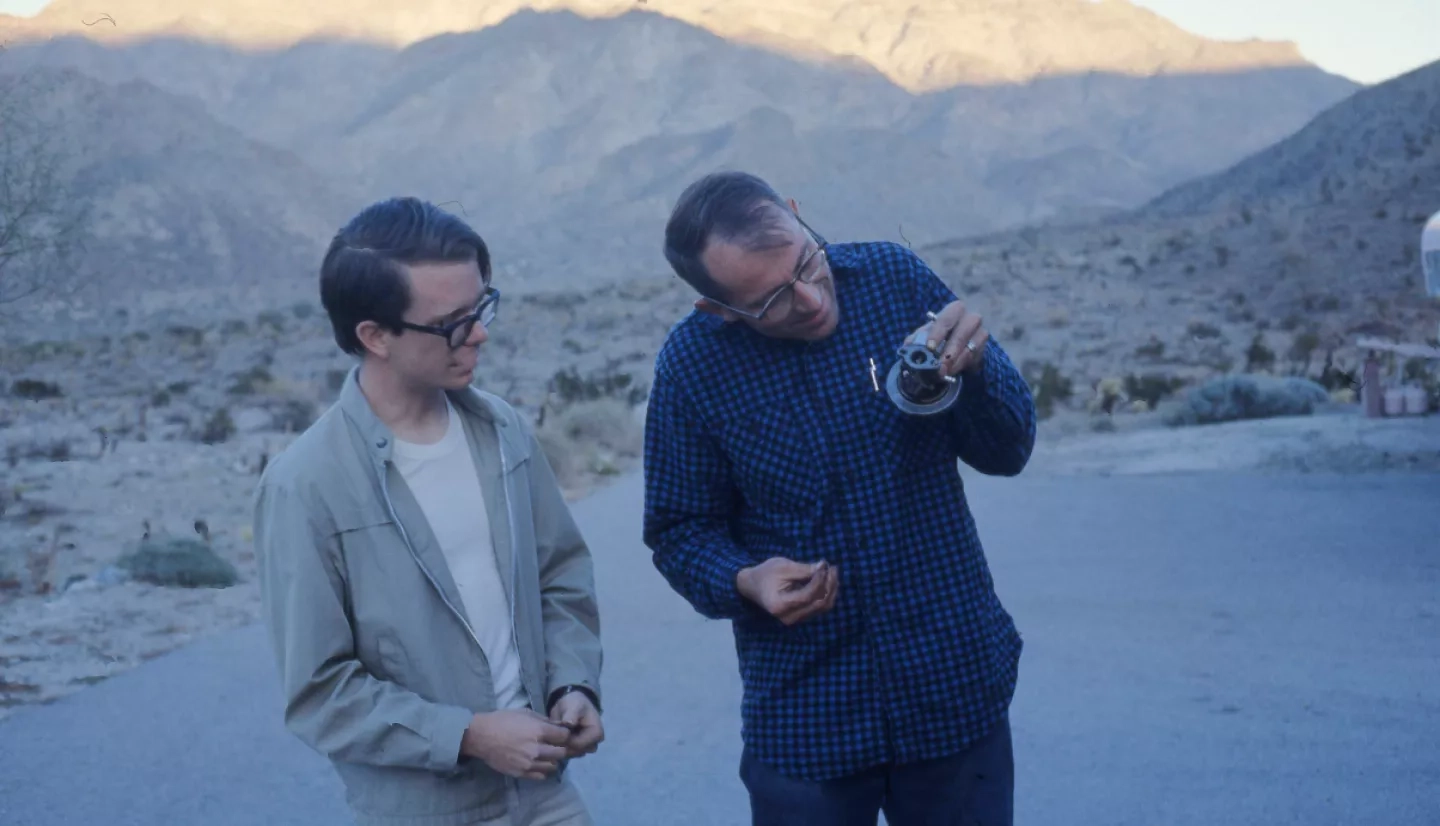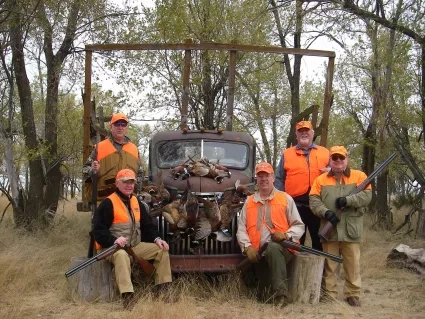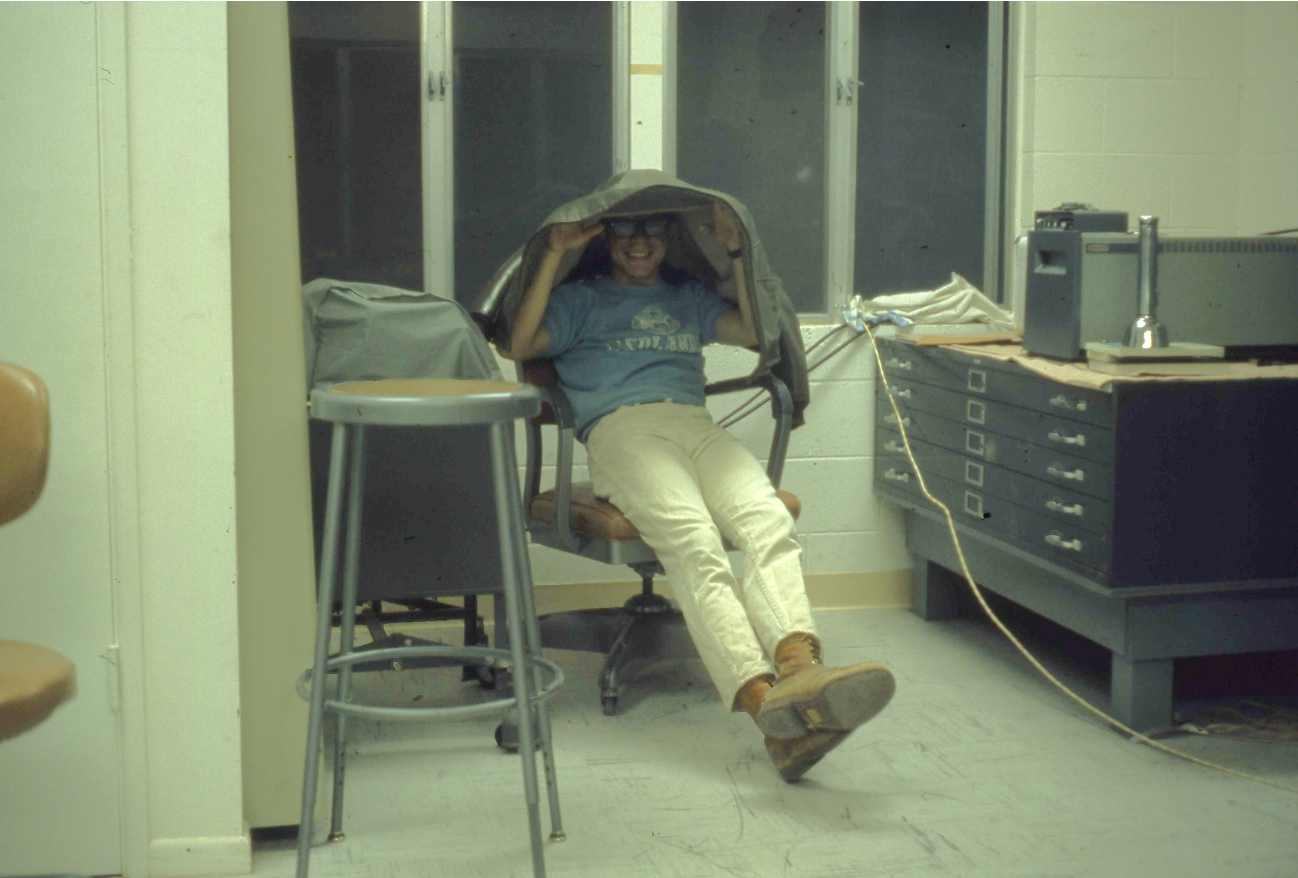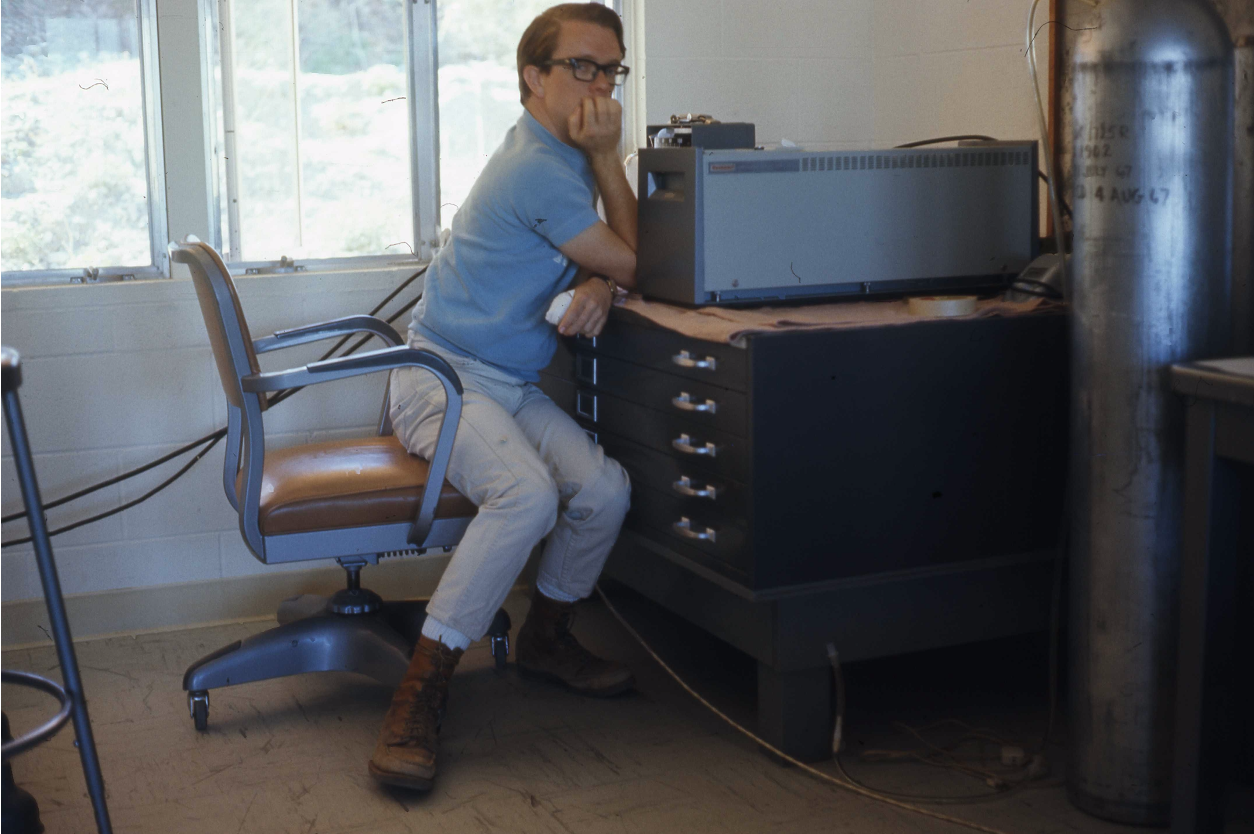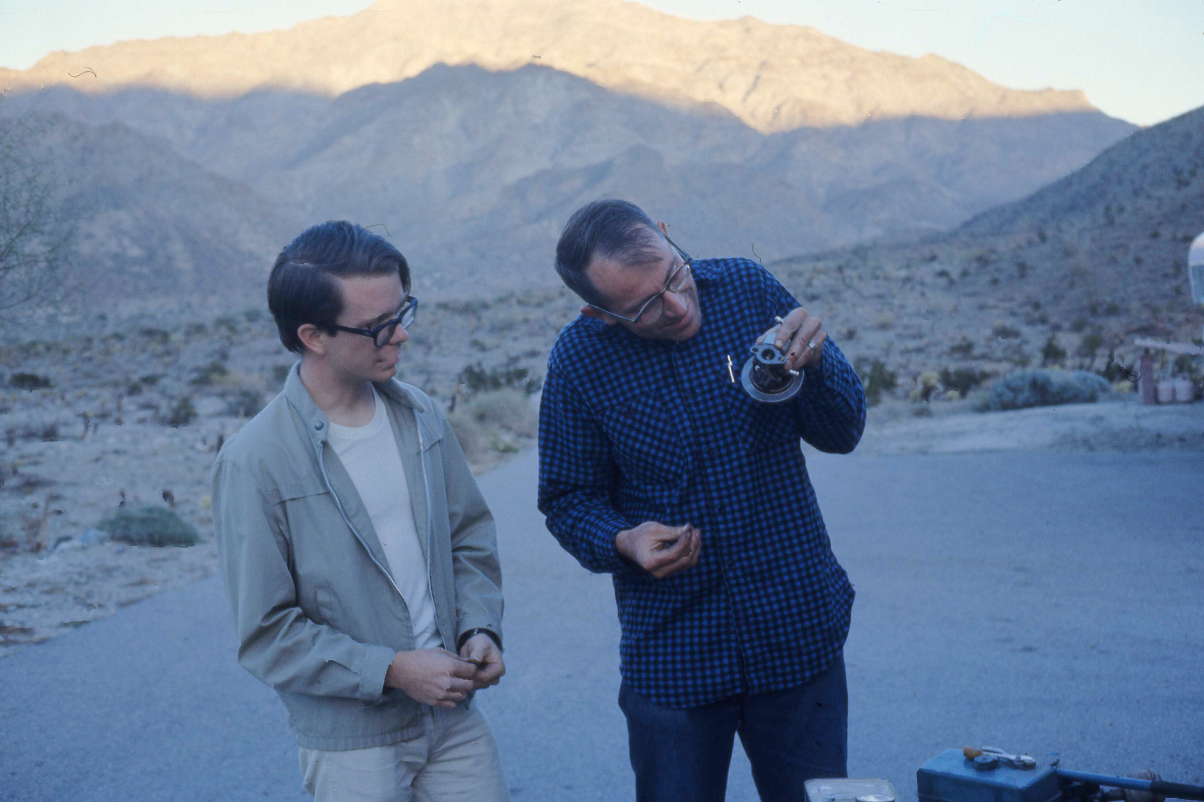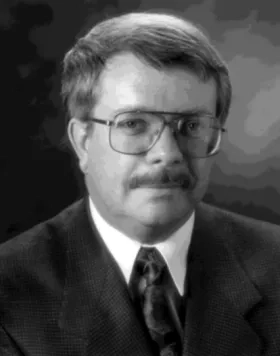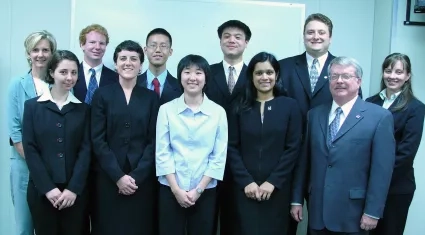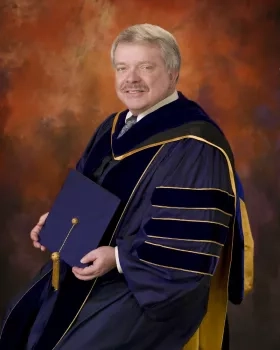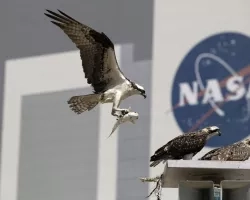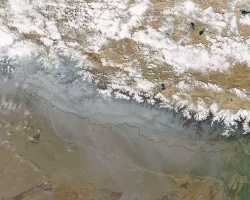Jay Skiles, associate program manager for Earth Applied Sciences Ecological Forecasting program area, is well known at NASA for leading research on Earth’s natural systems. But when he retires this September after 30 years at NASA, he plans to get back to his roots – spending more time in the natural world he’s spent his entire career studying.
“I’ve always been a person who enjoys being outside; I’m eager to get outdoors, do more walking, and take more hunting trips to some of the beautiful wilderness we have in this country,” Skiles said.
That love for the outdoors has been a driving force in Skiles’s life and career. He first arrived at college as a golf-playing, jazz clarinet player with an interest in science. “I was going to major in chemistry,” Skiles said, “until I took a few classes and realized it would keep me in the lab all day. I had been a backpacker for a long time – I needed something that would let me be outdoors.”
So, Skiles turned to biology. He received his bachelor’s degree in biology from the University of Redlands in California, then moving on to a master’s degree in botany (emphasis in physiological plant ecology) from the University of Idaho, Moscow, and a doctorate in ecology and evolutionary biology from the University of California, Irvine.
“I admit I don’t like ‘slimy’ things, like bacteria, but I’ve been interested in plants since I was in kindergarten, helping my grandma in her yard and garden,” Skiles said. “Now I enjoy studying plants because they can’t run away, and they don’t turn around and bite you. Plants don’t scream when you cut them.”
Skiles has successfully avoided screaming plants ever since, instead leading important research at NASA on topics like the effects of elevated atmospheric carbon dioxide on ecosystems and terrestrial plant responses to increased ultraviolet radiation in the Arctic. He has also used supercomputers to do ecosystem modeling and studied the effects of low intensity microwave fields on vascular plants.
Before he arrived at NASA, Skiles taught science classes at four different universities. That time working with students turned out to serve as preparation for some of the responsibilities he later took on at NASA. Skiles was teaching at San Diego State University when an opening for a data manager came up at NASA's Ames Research Center, one of ten NASA field centers, located in the heart of California's Silicon Valley. Skiles knew he was qualified and applied – and the rest is history.
After 10 years at Ames, Skiles moved to NASA DEVELOP to guide and mentor the program's early career scientists. Part of the Capacity Building program area, DEVELOP is now a nationwide program that pairs new scientists with partner organizations in a 10-week program that encourages the use of NASA Earth science data to address real-world problems. Cassie Burton was one of Skiles's students, and she says he was not only vital to the start of her career – he became a lifelong friend.
“Jay Skiles was my direct boss and a foundational mentor in my career. I will forever appreciate that he spearheaded DEVELOP at Ames and took on managing groups of ambitious, intelligent and sometimes unwieldy college students,” said Burton, now an account executive at Merlin Cyber. “I have so much respect for Jay and the contributions he has made to our country and the world, as a deep thinker in the science of ecological forecasting.”
“After I left NASA, Jay continued to serve as a mentor and friend,” Burton continued. “When I got married in 2007, I invited him to my wedding; it was my great pleasure to sit him at a table with my parents and grandparents. I wish him the absolute very best in this next chapter of his accomplished life.”
Cindy Schmidt, now in the Ecological Forecasting program area, was also at DEVELOP with Skiles. “Jay could write a book on his time at NASA. But what stands out to me is what an incredible mentor to those students Jay was. He took his job as a science mentor very seriously and brought his commitment to scientific integrity to the guidance he provided. He held students to very high standards – and because of that, the students rose to the occasion, and the quality of the program was very high. His contributions to DEVELOP were huge.”
When asked what advice he’d give to early career scientists, Skiles didn’t hesitate. “Even if you’re in life sciences, take as much math and statistics as you can,” he said. “There were plenty of times in my career when I wished I had more fluency in math.”
Schmidt had her own advice to give: “Don’t ever drive in a rental car with Jay!” she said.
“We did have bad luck whenever a DEVELOP intern was driving,” Skiles admitted. “We lost a bumper on a car in Nevada nine miles from the nearest telephone and had to piece it back together with rope and duct tape. Another time in Colorado, the car in front of us slammed on the breaks. We stopped in time, but the car behind us didn’t. Our vehicle was barely scratched, but the intern driving was pretty shaken up. You can see why I enjoyed my time with DEVELOP – the interns were a real kick, extraordinarily sharp and everyone was different, and we often went off plan for the better.”
Through the twists, turns and missing bumpers, Skiles’s career was marked by scientific integrity and passion for sharing knowledge with others.
“Jay’s outstanding scientific knowledge was instrumental in getting the West Coast DEVELOP activity started and helping DEVELOP scholars improve their research skills,” said DEVELOP program manager Mike Ruiz. “I was always fascinated by the history of Jay’s family and learned much about aviation as Jay taught me a lot about his father’s experiences as a pilot. I will always remember and appreciate Jay’s commitment to delivering projects with a high level of scientific integrity. Thank you for your science service to our nation, Jay.”
Skiles's service extends beyond scientific contribution. “What Jay won’t tell you is that he is active in every community he’s in, serving leadership roles in volunteering,” said Schmidt. “Jay volunteered with the police, and now holds positions with local Mason chapters and is constantly looking for ways to give back.”
Skiles lives in Mountain View, California, and has served there for eight years as Field Patrol Assistant, a volunteer position with the Mountain View Police Department that requires over 40 hours of special training. He helped respond to small community incidents and even assisted with car accidents, with a marked police car and a flashlight and radio on his belt.
And even while diving into science, Skiles never left his love for music behind. From 2012 to 2014, he helped organize an instrument drive that provided almost $200,000 in musical band instruments to local middle schools, and another that provided sports equipment to schools where students didn’t have the resources to play.
Skiles’s leadership and commitment to helping others shone through at work, as he continued moving forward at NASA. After years of sharing his expertise with students at DEVELOP, he moved to the Ecological Forecasting program area, where he became an associate program manager. Woody Turner, head of the program area, has worked with Skiles since he joined the Eco team almost a decade ago.
“Jay brought many things to NASA Ecological Forecasting over his nine years of program leadership,” Turner said. “I’m most grateful for the ecological rigor he brought to his daily activities, his directness in confronting issues and problems, the dry sense of humor he showed on more than one occasion, his love for NASA as an institution, and the courage with which he met health challenges while still delivering the goods to the program, the agency and his colleagues. Quite a guy.”
While he leaves a 30-year legacy at NASA, Skiles is looking forward to the future with excitement. “It’s not retirement – it’s graduation!” Skiles said. “And next I get to do more walking, more hunting and more reading. I have a pile of books I’ve been wanting to get to, but I’m also looking forward to doing some deep reorganizing. My current filing system for papers is stratigraphic – I know what pile and what level.”
After three decades of science and service at NASA, Skiles’s legacy is one of integrity, diligence and humor. With or without NASA Earth observations on hand, he will continue to fulfill the Applied Sciences mission of making life on Earth better for generations to come.
